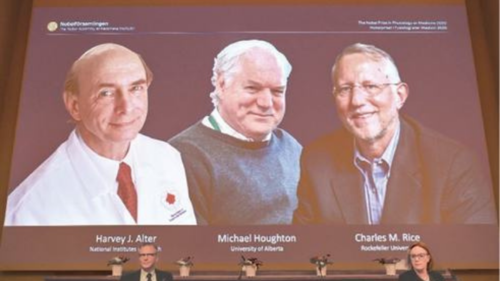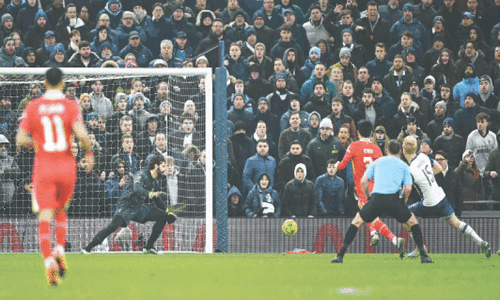STOCKHOLM: Two women scientists won the 2020 Nobel Prize in Chemistry on Wednesday for creating genetic ‘scissors’ that can rewrite the code of life, contributing to new cancer therapies and holding out the prospect of curing hereditary diseases.
Emmanuelle Charpentier, who is French, and American Jennifer Doudna share the 10 million Swedish crown ($1.1 million) prize for developing the CRISPR/Cas9 tool to edit the DNA of animals, plants and microorganisms with precision.
“The ability to cut the DNA where you want has revolutionised the life sciences,” Pernilla Wittung Stafshede of the Swedish Academy of Sciences told an award ceremony.
Charpentier, 51, and Doudna, 56, become the sixth and seventh women to win a Nobel for chemistry, joining Marie Curie, who won in 1911, and more recently, Frances Arnold, in 2018.
The French and American scientists become the sixth and seventh women to win the prize for chemistry
It is the first time since 1964, when Britain’s Dorothy Crowfoot Hodgkin alone won the award, that no men are among the chemistry prize winners.
Charpentier, of the Max Planck Unit for the Science of Pathogens, told journalists in Berlin she was “extremely emotional and extremely moved” by the award, which came as a complete surprise even though she had been tipped as contender.
The first Nobel won by two women showed how “science becomes more modern and develops more female leaders”, she said after setting down a glass of wine to pose for the cameras alongside a bust of Planck, the 1918 Physics Nobel laureate.
Doudna is already employing CRISPR in the battle against the coronavirus as co-founder of biotech startup Mammoth, which has tied up with GlaxoSmithKline to develop a test to detect infections.
“What started as a curiosity-driven, fundamental discovery project has now become the breakthrough strategy used by countless researchers working to help improve the human condition,” Doudna said in a statement.
Controversial field
The path from discovery to prize has taken less than a decade — a relatively short period by Nobel standards.

And, although CRISPR had been tipped to win the Chemistry prize, there has also been concern that the technology conferred God-like powers on scientists and could be misused, for example, to create ‘designer babies’.
“The enormous power of this technology means that we need to use it with great care,” said Claes Gustafsson, chair of the Nobel Committee for Chemistry. “But it is equally clear that this is a technology, a method that will provide humankind with great opportunities.”
Asked whether she had a relationship with God, Charpentier earlier told the award ceremony that she was raised a Catholic. Now, she said: “All my focus is on science — I believe in what I am doing as a scientist.” CRISPR is a crowded field, with competing claims on discovery triggering a patent dispute that continues between the prize winners and a team led by Feng Zhang of the Broad Institute of MIT and Harvard.
Gustafsson declined to say whether the prize committee had considered other contenders.
Charpentier’s breakthrough came in the study of Streptococcus pyogenes, an ancient bacterium that can cause tonsilitis and potentially fatal sepsis in people, when she found that a previously unknown molecule in its immune system could ‘cleave’ DNA.
She published her findings in 2011 and quickly joined forces with biochemist Doudna, of the University of California, Berkeley, to recreate the bacteria’s genetic scissors in a test tube and simplifying the tool to make it easier to use.
The duo published their findings in June 2012, seven months before the Broad Institute group, which however successfully filed a series of US patent applications and says its gene editing technology is better.
Despite the controversy, Broad Institute Director Eric Lander sent his “huge congratulations” to Charpentier and Doudna.
Published in Dawn, October 8th, 2020














































